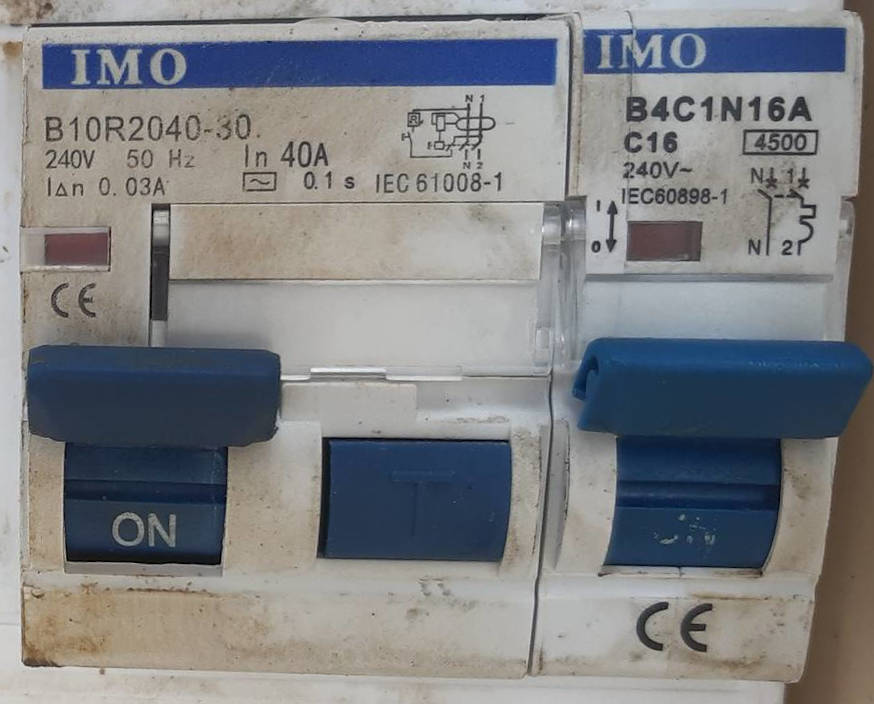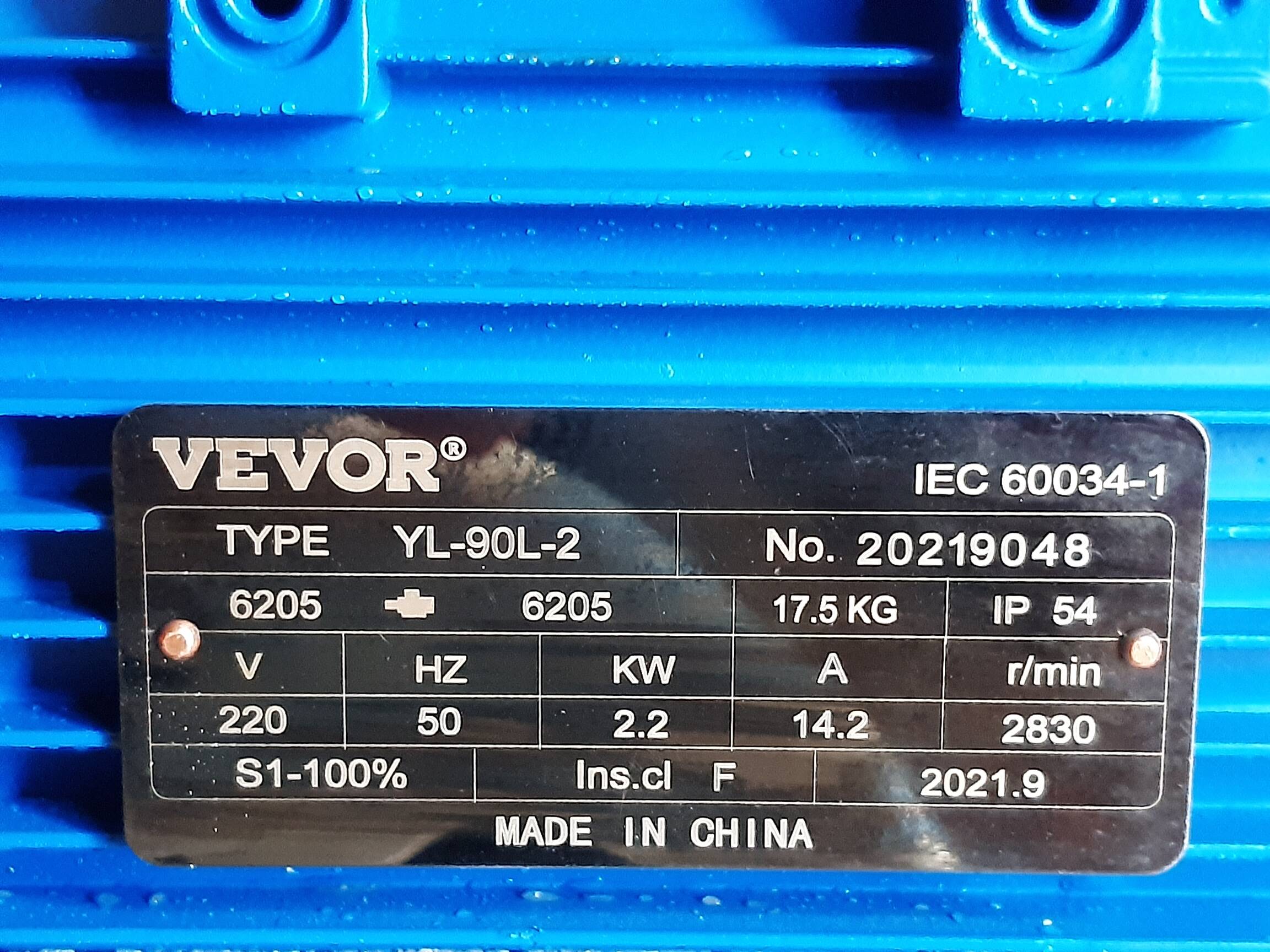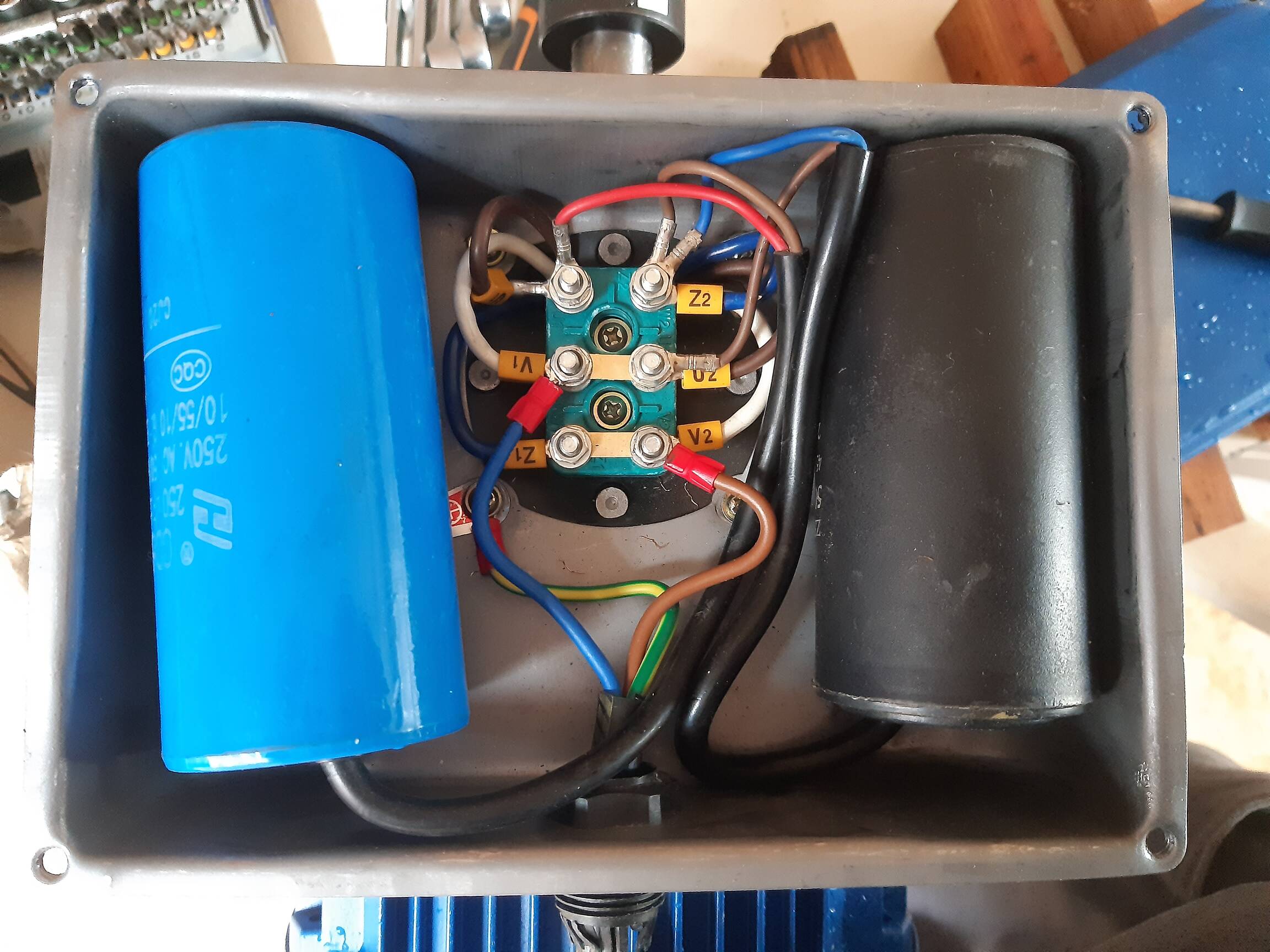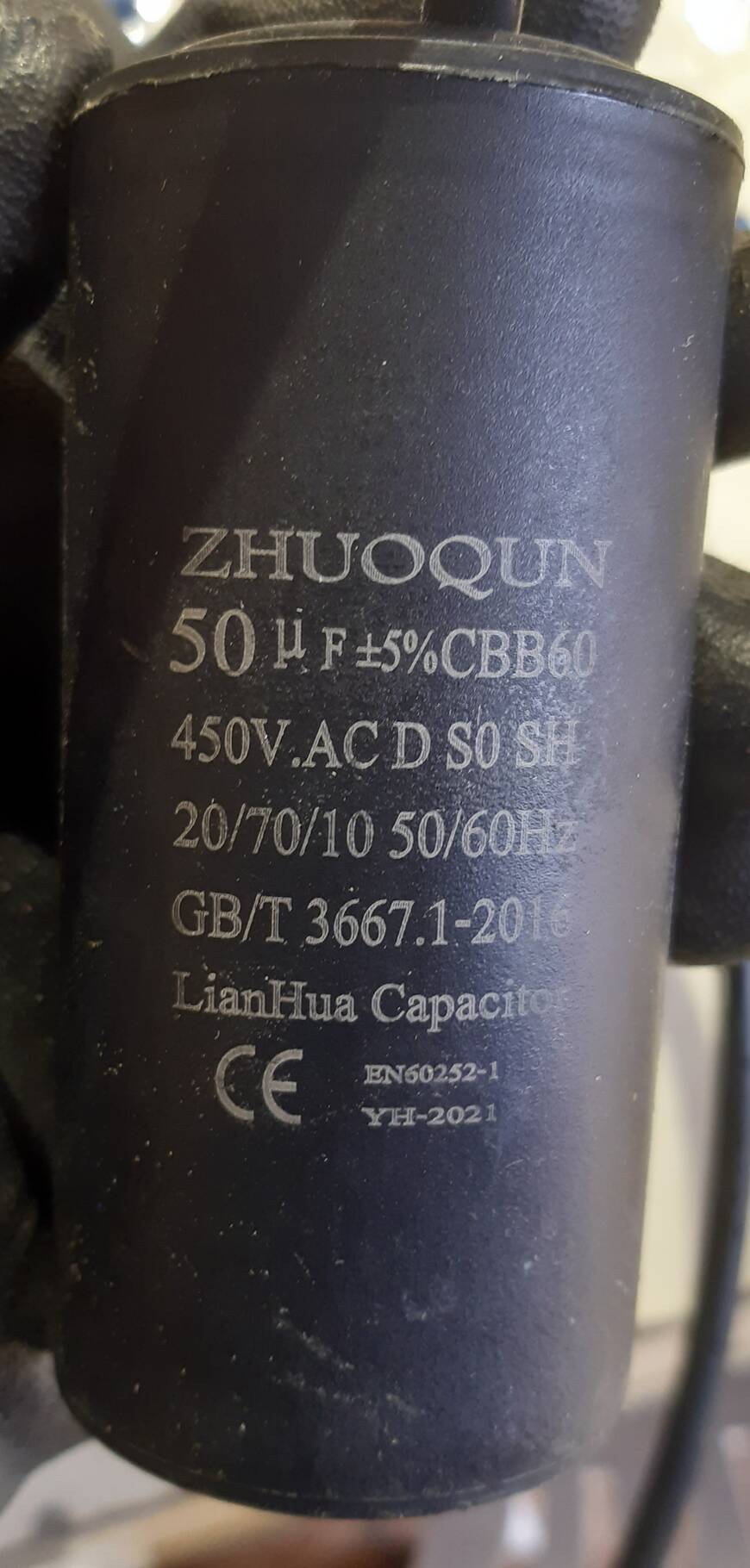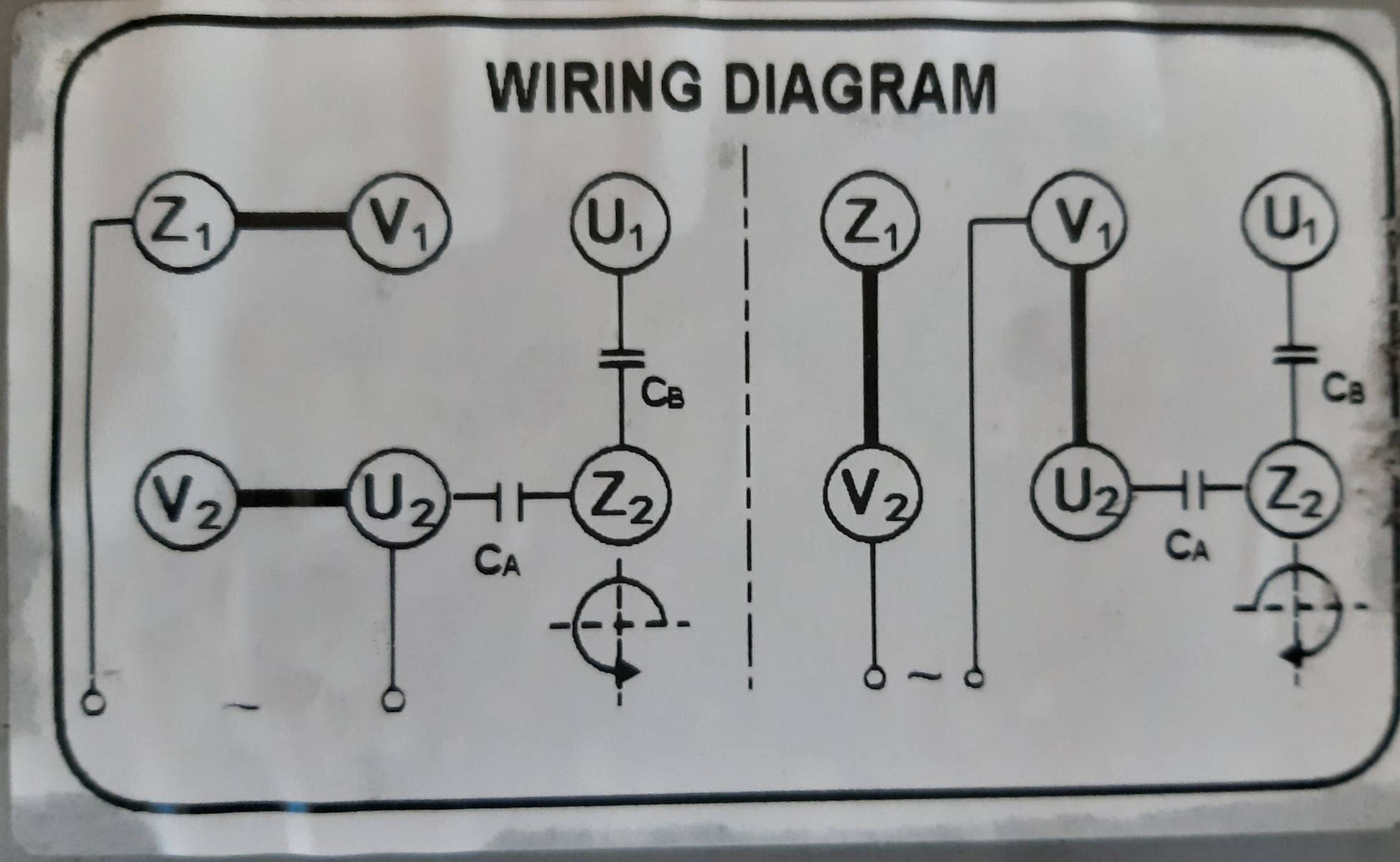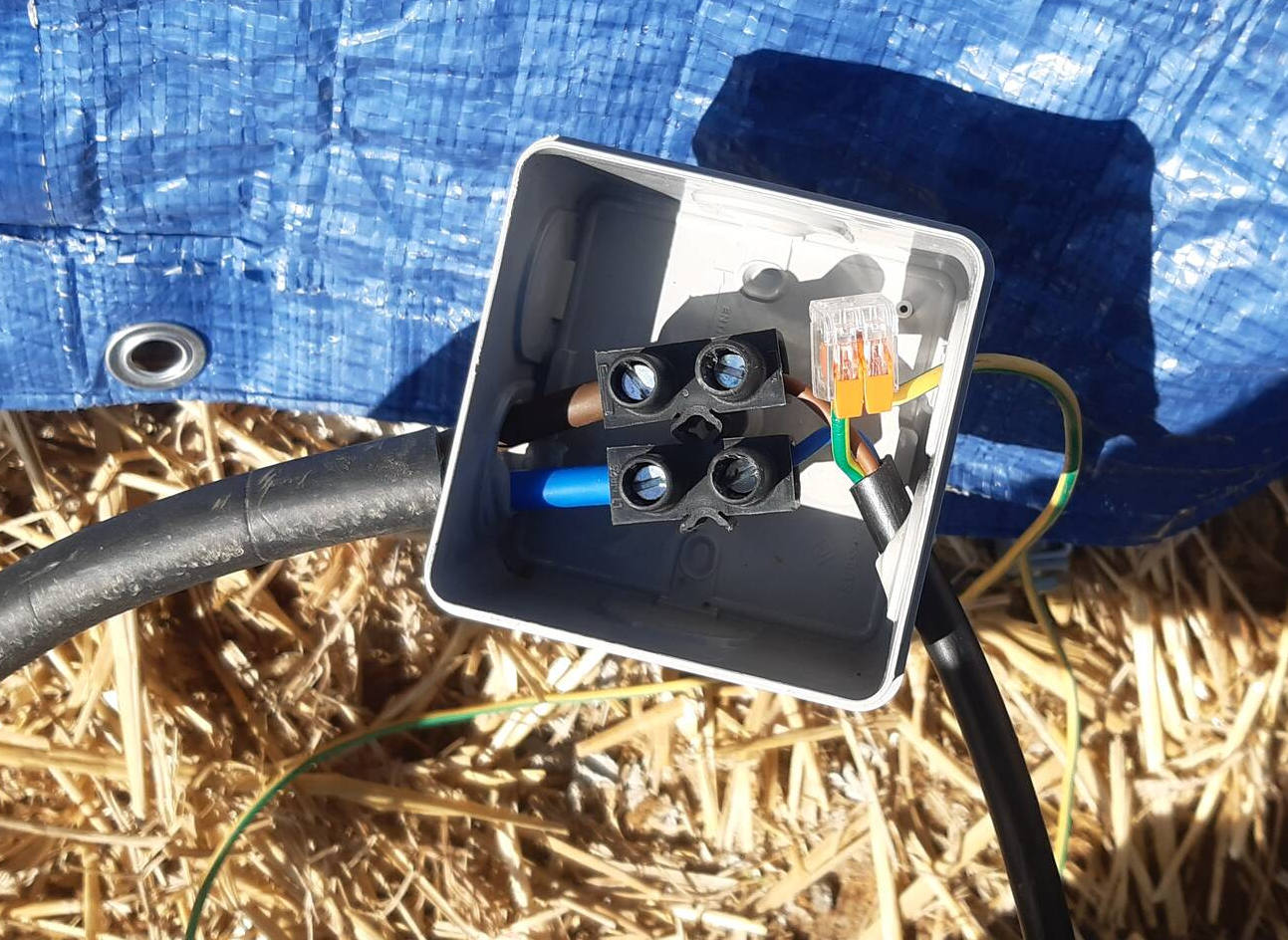I bought a single phase induction motor to build a mortar pump, the motor needs to be operated far from the power source (home construction site).
The motor does not start when connected to mains using a 50 meters cable. It rotates a little bit erraticaly then trips the breaker, this is with no load applied. The starting torque seems to be very very low in this configuration.
The motor starts and runs fine when using a short 2 meters cable, in this configuration the starting torque is enough to turn the rotor of the moineau pump.
Video clips without load:
Technical details
Power source (construction site temporary electrical power)
I don't think I need a D curve breaker as the motor runs fine with the short cable without triggering the breaker.
Motor
Vevor YL-90L-2
Ca: black capacitor, Cb: blue capacitor
I do not know whether the start capacitor is disconnected with a centrifugal switch or relay but I can hear a click when disconnecting the motor and the shaft comes to a near stop.
Cabling
50 meters of 2.5 mm² solid copper wire. U1000R2V 3X2,5 mm²
The cable is laying bare on the ground in a straight line, it is brand new / not damaged.
Conclusion
What causes the failure with the long cable? How can I solve it?
My guess is that the start capacitor does not have an adequate value when using a long cable which causes very low starting torque but my understanding stops there. I can perform tests and publish the results if it can help.
Edit 1
I tested with a bigger cable:
- First cable: 2 meters / 2.5 mm²
- Second cable: 36 meters / 25 mm²
- Third cable: 12 meters / 2.5 mm²
Same result, motor does not spin by itself and trips the breaker.

